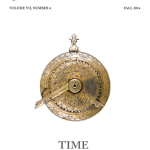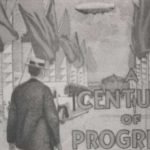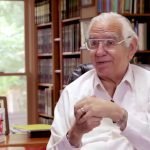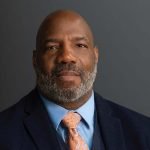The history journal/magazine is returning after a brief hiatus. Here is the press release: Lapham’s Quarterly, the celebrated journal of history and ideas founded by the late editor and journalist Lewis H. Lapham, will relaunch under the stewardship of Bard […]
History
History saves us from ourselves
My piece in yesterday’s Sunday edition of the Pittsburgh Post Gazette. A taste: Today the study of history is used as a cudgel in the culture wars. Activists on both the left and the right cherry-pick from the past to […]
Are “progress” and “justice” just a “secularized form” of “providence”?
Over at Inside Higher Ed, historian Steven Mintz writes: “In a world increasingly shaped by secularism and scientific empiricism, a paradox emerges: the enduring belief that history has direction, meaning and purpose—a secularized form of providentialism. Once the realm of […]
In the Fall of 2024, history matters
Here is Harvard intellectual historian James Kloppenberg at Commonweal: Before entering graduate school I had read a little book by the Oxford historian E. H. Carr, What Is History? I found his answer persuasive: it is a practice of interpretation. Historians can […]
Cornerstone University is literally rewriting history
The purge at Cornerstone University appears to be very thorough. The University is eliminating references to its fired professors, the so-called “contrarians.” Not familiar with this ongoing story? Get up to speed here. An article on the Cornerstone website about […]
Ken Burns at Brandeis
Documentary film maker Ken Burns recently delivered the commencement address to the graduating class of Brandeis University. Read it here. Or watch it here: Here is a taste of Karen Tumulty’s piece at The Washington Post: Burns offered some elegantly […]
Was Trump really impeached twice?
Yes. He was. But Marjorie Taylor Greene and Elise Stefanik don’t think so. No, really. They have introduced resolutions to “expunge” Trump’s impeachments from the historical record “as if such Articles of Impeachment had never passed the House of Representatives.” […]
Why don’t more theology students take history courses?
At the school where I teach there are ample opportunities for students to shape their intellectual experience through a double “major” or a “minor” or two. Just the other day, for example, I was talking to one of my academic […]
On the “fuzzy border” between history and journalism
As a trained historian who serves as the co-founder and executive editor of an online website of opinion, I resonated with New York Times reporter Clay Risen’s recent piece at Perspctives on History: “Professional Crafts: The Fuzzy Border between History […]
Mintz: History should be relevant, but not at the expense of nuance and complexity.
Check out Steven Mintz’s piece at Inside Higher Ed. Anyone who reads this blog will know that I agree with him. I’ve staked a lot on Mintz’s claim in the title of this post A taste: I understand that at […]
History in crisis
Historian Jon Lauck‘s editorial at Middle West Review has been making the rounds on social media. The piece is behind a paywall, but here are the first couple of paragraphs: You can see it in the empty chairs. History conferences […]
Roots
Every year in my United States history survey course we spend three or four class periods talking about the meaning of democracy in antebellum America. During a small seminar I introduce students to Alexis De Tocqueville, the author of Democracy […]
The American Historical Association announces 2022 prize winners
Read the full list here. Here are a few that caught my eye: The Albert J. Beveridge Award in the history of the United States, Latin America, or Canada, from 1492 to the present: Roberto Saba (Wesleyan Univ.) for American Mirror: The United […]
Jelani Cobb: “I would like to see our graduates walking out the door with 50 years of contextual knowledge on the beats they cover”
This is what you get when you hire an American historian to run a school of journalism. Historian and New Yorker writer Jelani Cobb is the new dean of Columbia School of Journalism. What a great pick! Here is a […]
Eric Foner: “We can’t accept the principle that the way to judge a course of study is by how much money you will make.”
Eric Foner reflects on his life as a historian in this interview with Nawal Arjini at New York Review of Books. A taste: Nawal Arjini: How did you come to specialize in Civil War history? Eric Foner: When I was in college in […]
Do you need help with history grant writing?
Check out this webinar sponsored by the Organization of American Historians: This webinar will help historians connect their existing aptitudes and skills to the process of institutional grant writing. Historians already engage in most of the common doings of the […]
Abortion, the Supreme Court, and the uses of history
Below is a taste of Carlos Lozado’s piece at The Washington Post. It is one of the better things I have read on Dobbs. …One of the sharpest divides in the Supreme Court’s abortion rulings is over history — what […]
Why history matters
Over at Inside Higher Ed, historian Steven Mintz reflects on Richard Cohen’s Making History: The Storytellers Who Shaped the Past. The entire piece is definitely worth your time. Here is a taste: In 1879, Albion W. Tourgée anonymously published a […]
Why do we HAVE to study history?
I love this:
Is revisionist history “fiction”? Yes, if you are a Texas conservative.
Kevin Roberts is the Chief Executive Officer of the Texas Public Policy Foundation. He has a Ph.D in American history from the University of Texas. His 2003 dissertation was titled “Slaves and slavery in Louisiana: The Evolution of Atlantic World […]

















